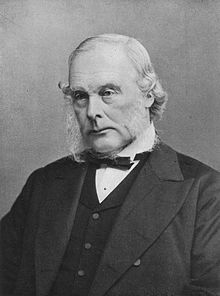Portal:History of science
The History of Science Portal
The history of science covers the development of science from ancient times to the present. It encompasses all three major branches of science: natural, social, and formal. Protoscience, early sciences, and natural philosophies such as alchemy and astrology during the Bronze Age, Iron Age, classical antiquity, and the Middle Ages declined during the early modern period after the establishment of formal disciplines of science in the Age of Enlightenment.
Science's earliest roots can be traced to Ancient Egypt and Mesopotamia around 3000 to 1200 BCE. These civilizations' contributions to mathematics, astronomy, and medicine influenced later Greek natural philosophy of classical antiquity, wherein formal attempts were made to provide explanations of events in the physical world based on natural causes. After the fall of the Western Roman Empire, knowledge of Greek conceptions of the world deteriorated in Latin-speaking Western Europe during the early centuries (400 to 1000 CE) of the Middle Ages, but continued to thrive in the Greek-speaking Byzantine Empire. Aided by translations of Greek texts, the Hellenistic worldview was preserved and absorbed into the Arabic-speaking Muslim world during the Islamic Golden Age. The recovery and assimilation of Greek works and Islamic inquiries into Western Europe from the 10th to 13th century revived the learning of natural philosophy in the West. Traditions of early science were also developed in ancient India and separately in ancient China, the Chinese model having influenced Vietnam, Korea and Japan before Western exploration. Among the Pre-Columbian peoples of Mesoamerica, the Zapotec civilization established their first known traditions of astronomy and mathematics for producing calendars, followed by other civilizations such as the Maya.
Natural philosophy was transformed during the Scientific Revolution in 16th- to 17th-century Europe, as new ideas and discoveries departed from previous Greek conceptions and traditions. The New Science that emerged was more mechanistic in its worldview, more integrated with mathematics, and more reliable and open as its knowledge was based on a newly defined scientific method. More "revolutions" in subsequent centuries soon followed. The chemical revolution of the 18th century, for instance, introduced new quantitative methods and measurements for chemistry. In the 19th century, new perspectives regarding the conservation of energy, age of Earth, and evolution came into focus. And in the 20th century, new discoveries in genetics and physics laid the foundations for new sub disciplines such as molecular biology and particle physics. Moreover, industrial and military concerns as well as the increasing complexity of new research endeavors ushered in the era of "big science," particularly after World War II. (Full article...)
Selected article -
The history of artificial intelligence (AI) began in antiquity, with myths, stories and rumors of artificial beings endowed with intelligence or consciousness by master craftsmen. The study of logic and formal reasoning from antiquity to the present led directly to the invention of the programmable digital computer in the 1940s, a machine based on the abstract essence of mathematical reasoning. This device and the ideas behind it inspired a handful of scientists to begin seriously discussing the possibility of building an electronic brain.
The field of AI research was founded at a workshop held on the campus of Dartmouth College during the summer of 1956. Attendees of the workshop became the leaders of AI research for decades. Many of them predicted that machines as intelligent as humans would exist within a generation. The U.S. government provided millions of dollars to make this vision come true. (Full article...)
Selected image

"Fuji at Torigoe" is the eightieth woodblock print from One Hundred Views of Mt. Fuji by the Japanese ukiyo-e artist Hokusai. It depicts the observatory of the Calendar Bureau during the Edo period, with astronomers working on the roof, Mount Fuji in the background. According to Hokusai scholar Henry D. Smith II, the instrument is best seen as an indication of Hokusai's interest in Western science rather than a representation of Japanese astronomical practice.
Did you know
...that the word scientist was coined in 1833 by philosopher and historian of science William Whewell?
...that biogeography has its roots in investigations of the story of Noah's Ark?
...that the idea of the "Scientific Revolution" dates only to 1939, with the work of Alexandre Koyré?
Selected Biography -
Joseph Lister, 1st Baron Lister, OM, PC, FRS, FRCSE, FRCPGlas, FRCS (5 April 1827 – 10 February 1912) was a British surgeon, medical scientist, experimental pathologist and pioneer of antiseptic surgery and preventive healthcare. Joseph Lister revolutionised the craft of surgery in the same manner that John Hunter revolutionised the science of surgery.
From a technical viewpoint, Lister was not an exceptional surgeon, but his research into bacteriology and infection in wounds revolutionised surgery throughout the world. (Full article...)
Selected anniversaries
- 1656 – Death of Jean-Baptiste Morin, French scientist (b. 1583)
- 1771 – Death of John Bevis, English physician and astronomer (b. 1695)
- 1822 – Death of Claude Louis Berthollet, French chemist (b. 1748)
- 1944 – Plutonium is first produced at the Hanford Atomic Facility and subsequently used in the Fat Man Atomic bomb dropped on Nagasaki, Japan
- 1950 – Birth of Amir Aczel, lecturer in mathematics
- 1964 – Death of Hans von Euler-Chelpin, German-born chemist, Nobel Prize laureate (b. 1863)
Related portals
Topics
General images
Subcategories
Things you can do
Help out by participating in the History of Science Wikiproject (which also coordinates the histories of medicine, technology and philosophy of science) or join the discussion.
Associated Wikimedia
The following Wikimedia Foundation sister projects provide more on this subject:
-
Commons
Free media repository -
Wikibooks
Free textbooks and manuals -
Wikidata
Free knowledge base -
Wikinews
Free-content news -
Wikiquote
Collection of quotations -
Wikisource
Free-content library -
Wikiversity
Free learning tools -
Wiktionary
Dictionary and thesaurus









































































